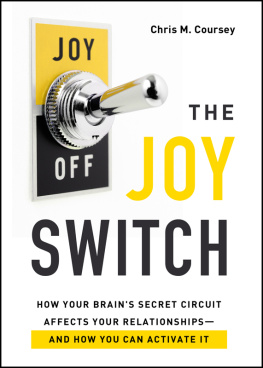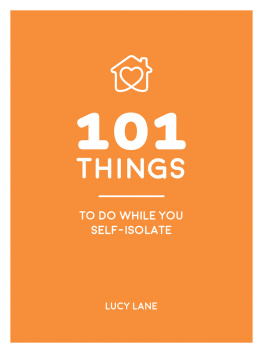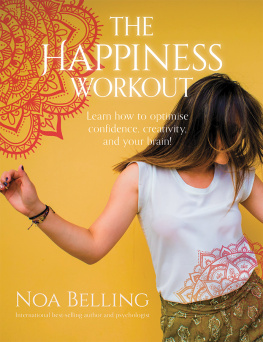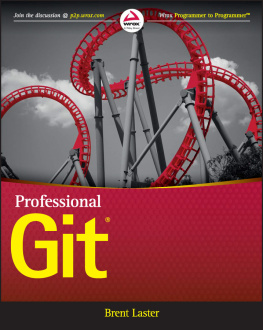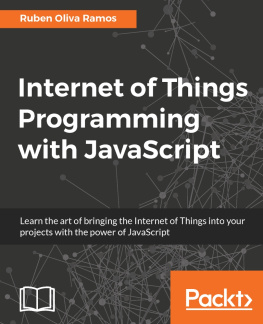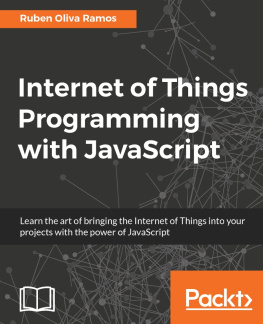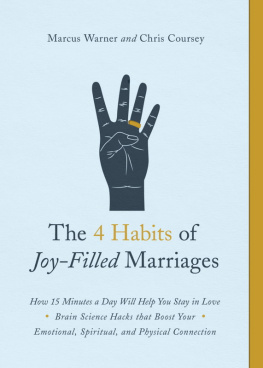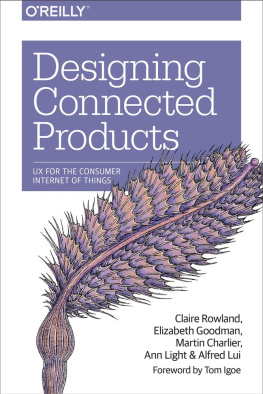Introduction
WHY T HIS BOOK
It was time to tuck my son into bed. We have a habit of reading him a story before he sleeps, so I casually asked him, Kevin, who would you like to have read you a story for the night?
He said without any hesitation, Mom, of c ourse!
Ouch! Tha t hurt.
Why Mom? I asked.
Well, he replied. She is good at telling st ories.
He was right. My wife does tend to bring storie s alive.
I have spent my entire career in the communication industry working for different agencies. One would expect me to deliver great stories, but as my son so clearly pointed out, it is not my greatest strength! However, over the years, I have added value by helping people tell their stories. As a coach and mentor, I have helped people connect their own dots. From their workplace presentations to key aspects of their lives, I have helped them relate their stories.
I believe every life is an interesting story and this story is best written when people go through lifes experiences by staying deeply connected to who they truly are. Unfortunately, not many people know themselves deeply enough. Our schools, colleges and workplaces do not teach us the art of self-introspection. So most of us go through life with just the intention of meeting the standard expectations of our parents, teachers and society. Then, somewhere down this line of trying to fit in with the lot, we lose touch with the key elements that make us who we rea lly are.
The journey of self-discovery is an interesting one. For me, it started by asking myself repeatedly why I thought, felt and acted the way I did in different situations. I believe that staying connected to my sense of self is the reason I have enjoyed the experiences life has thrown my way. The more I have walked down this path, the more I have looked forward to this never-ending journey. I have come to believe that success depends less on major life choices and more on our daily decisions, actions and habits. These are based on our perception of right and wrong and are influenced by our thoughts and feelings. Even though it is known that the brain plays an integral part in creating each of thesethoughts, feelings, perceptions, habits, behaviour and moresurprisingly, very few of us are aware of how our brain helps us ge t there.
The intention of writing this book is to kindle the fire of self-discovery and provide the reader with a starting point of why he/she thinks, feels and acts a certain way. This book presents some interesting facts about the human brain. These are facts every individual should know as they open the doors to understanding ourselves and others better. The ideas in this book are drawn heavily from concepts in neuroscience and psy chology.
Let me be honestI do not have a formal degree in neuroscience or in psychology, but I have dedicated the last few years of my life trying to find answers to the above questions. It has helped me understand myself and other people better. Now it is time for me to share my study with you. Through this book, hopefully, you will be able to write your story too. I hope you e njoy it!
HOW ONE SHOULD READ T HIS BOOK
As mentioned, this book attempts to answer some of lifes interesting questions relating to why we do what we do. You will learn why each of us perceives things differently, why we are designed to learn and do things differently, how and why we create habits, why we feel insecure and what makes us trul y happy.
Each chapter is self-sufficient, and one doesnt necessarily need to start reading from the very first chapter. You can follow any order you choose. That said, some of the points made in earlier chapters do set a certain degree of context in later parts of t he book.
Each chapter first sets the context of the question being raised and goes on to present-related theories from the fields of neuroscience and psychology. Finally, the Key Takeaways summarise the chapter and provide points to ponder on, meant to get you to reflect on the insights from the chapter. The intent is that they serve as a starting point in creating internal conversations wit hin you.
I will be keen to hear from you on your thoughts and any feedback you may have on this book or any of its chapters. You can write to me at . Happy reading !


Notion Press
Old No. 38, New No. 6
McNichols Road, Chetpet
Chennai - 600 031
First Published by Notion Press 2018
Copyright Vishal Jacob 2018
All Rights Reserved.
eISBN 978-1-64324-477-8
This book has been published with all efforts taken to make the material error-free after the consent of the author. However, the author and the publisher do not assume and hereby disclaim any liability to any party for any loss, damage, or disruption caused by errors or omissions, whether such errors or omissions result from negligence, accident , or any other cause.
No part of this book may be used, reproduced in any manner whatsoever without written permission from the author, except in the case of brief quotations embodied in critical articles and reviews.
To my son, Kevin
I would never have written this book if it was not for you. May you grow into your most wonderf ul self.
Acknowledgements
T o begin with, the two people I would like to acknowledge most are my bosses Unny and Kartik. Afterall, this book would literally never have seen the light of day had it not been for them giving me a couple of months off to pen my thoughts down! I would also like to thank Prarthana for helping me structure my thoughts in each of the chapters and my wife Shirley for being a great critique, editing everything I wrote and endlessly debating everything and anything I had to say in this book! Someone tells me thats what wives are for!
KEY TAKEAWAYS FROM THIS CHAPTER
- Habits are usually formed by repetitive learning over years that use focused attention and memory in the initial period. But unlike repetitive learning, it is still possible to form habits without focused attention and memory. Depending on these to control habits is often futile.
- To be able to create a desired habit it is helpful to be aware of our very specific and personal purpose for wanting t o do so.
- To be in control of our habits, we must master the TAG (Trigger-Action-Gratification) loop . It is important to remember that each element in this loop has a very strong dependence on the previous one and designing each element must take that into account.
- To find more success in being in control of our habits, it is best to start small, grow the habit gradually, use the technique of chunking and be prepared for inevitable s etbacks.
- Habits make up, on average, 45% of the decisions any human being makes in a day. Hence being in control of this extremely compulsive behaviourboth in terms of creating preferred habits and controlling undesired ones is the only way to define a life of our own making.
KEY TAKEAWAYS FROM THIS CHAPTER
- Our educational systems favour specific ideas of intelligence at the exclusion of others. They also incorrectly identify intelligence with scores on exams or IQ tests. This creates an incomplete assessment of students which is carried into later years of thei r lives.
- Intelligence has been variously understood as having exceptional sk ill in:
- Verbal abilities (Stanfor d -Binet)
- Verbal and Skill-based abilities (W echsler)
- An overarching General Intelligence (Spear man) and
- A combination of abilities of different forms Logical, Linguistic, Musical, Spatial, Kinesthetic, Interpersonal, Intrapersonal, Existential and Naturalistic (G ardner).
Next page


